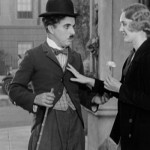Driving Miss Daisy Review
Of all the Best Picture winners I’ve seen, I think Driving Miss Daisy might be the one I’m most surprised won the award. There are some among the 82 distinguished films that are so ambitious and different that it’s a marvel they were acknowledged (Midnight Cowboy and No Country for Old Men come to mind). Then, there’s Driving Miss Daisy, a film so safe and slight, it’s easy to write it off. That being said, it’s still a charming way to spend 90 minutes. After it was over, I questioned why it was named Best Picture, but I didn’t regret watching it.
Daisy Werthan (Jessica Tandy) is the epitome of an old Southern belle, but one morning, her routine is thrown for a whirl when she wrecks her car in her driveway. Her son, Boolie (Dan Aykroyd), insists she can’t drive anymore. Enter Hoke (Morgan Freeman). Daisy doesn’t want Hoke around; she’d rather take the trolley everyday than spend time with him. But he’s persistent and gets her to see the sense in having him around. Their relationship is rocky at first, to say the least. She’s not prejudiced, but she is very set in her ways and doesn’t like the way Hoke disrupts her routine. Over time, however, they build a relationship. They bond over being the recipients of prejudice (he’s a black man; she’s a Jew), and she teaches him to read. And as the people around them move on (or pass away), they realize they only have each other.
It’s the relationship between Daisy and Hoke that makes Driving Miss Daisy worthwhile. Their scenes together are touching (for the most part), and because their differences are always minor, there’s never a sense of ugliness around them. These are two likeable individuals. They don’t undergo drastic transformations, but they do both change in subtle ways.
Unfortunately, the film is on much less solid ground when it tries to preach. Director Bruce Beresford certainly means well, but the way he makes statements is clunky and awkward in the context of what is ultimately a buddy movie. It doesn’t help that the two characters, while likeable and portrayed well, are absolute caricatures.
The film’s other major victory on Oscar night was in the Best Actress category. Jessica Tandy had played many roles before portraying Daisy Werthan, but none is as widely known or beloved as this one. She’s a sassy old Southern lady and doesn’t care who knows it. But behind all her tough talk is a woman who is sensitive and a little vulnerable, especially as she knocks the years off her calendar. Tandy pulls it all off splendidly.
The other lead is Morgan Freeman, and he’s just as good, if not better. There’s really no reason why Hoke would want to put up with Daisy’s nonsense when they first meet, but he does so because he recognizes that she’s not mean-spirited, just a little high-strung. His persistent optimism and cheeriness breaks down her wall of harsh words and guardedness, and when Daisy finally lets him in, he embraces her and shows her the value of a symbiotic friendship.
Film historians may not look kindly on this film. It is hard to really admire and love it because it doesn’t take any chances, but it’s also hard not to kind of enjoy on some level. Sure, it’s an imperfect film—it’s preachy moments are tough to take—but it’s one I still felt something toward and had some fun watching.
















